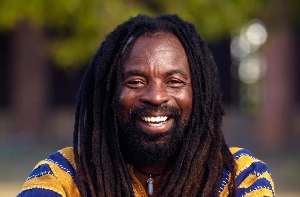Yelwoko (U/E), Dec. 6, GNA - The Yelwoko Community Based Organisation in the Bawku West District of the Upper East Region has launched its HIV/AIDS programme with a call on the community to translate the songs and drama they have formed about the disease into practice.
Speaking at the launch, a medical officer in charge of the Yelwoko Anglican Clinic, Mr Clement Abanga Atia advised the public on the bad cultural practices that contribute to the spread of HIV/AIDS. He said HIV/AIDS is their number one enemy and they must do everything possible to fight it.
Mr Atia said for the past two years, about 20 people within the community have died of AIDS, while about six more people were still struggling with the disease.
He advised the community to live disciplined lives by having faithful partners and avoiding multiple marriages, especially with widows and widowers without finding out the cause of death of their partners.
He however, called for free voluntary testing and counselling, adding, the people were too poor to pay for the testing.
The Very Reverend Father of the Bolgatanga Anglican Church, Jacob Ayeebo said, the church was not only after the people's spiritual growth but also their health and welfare.
He said after setting up a vocational centre to train the youth in vocation al skills, the church had constructed clinics at Yelwoko and Widnaba to see to the health needs of the people.
He advised the community that HIV/AIDS could affect anybody and therefore, everybody was at risk, adding that, the youth should avoid foreign practices such as kissing, which could also transmit the virus through cracked lips.
Father Ayeebo urged the people, especially the youth, to spread the message of HIV/AIDS to every corner of the district. The board chairman of the Vocational Centre, Rev. Francis Akooba said the programme aimed at creating awareness of the dangers of the disease to everybody in the district and beyond, cautioning that, if nothing seriously was done communities would be deprived of their young people, leaving the elderly who cannot till the land.
Regional News of Monday, 6 December 2004
Source: GNA
















